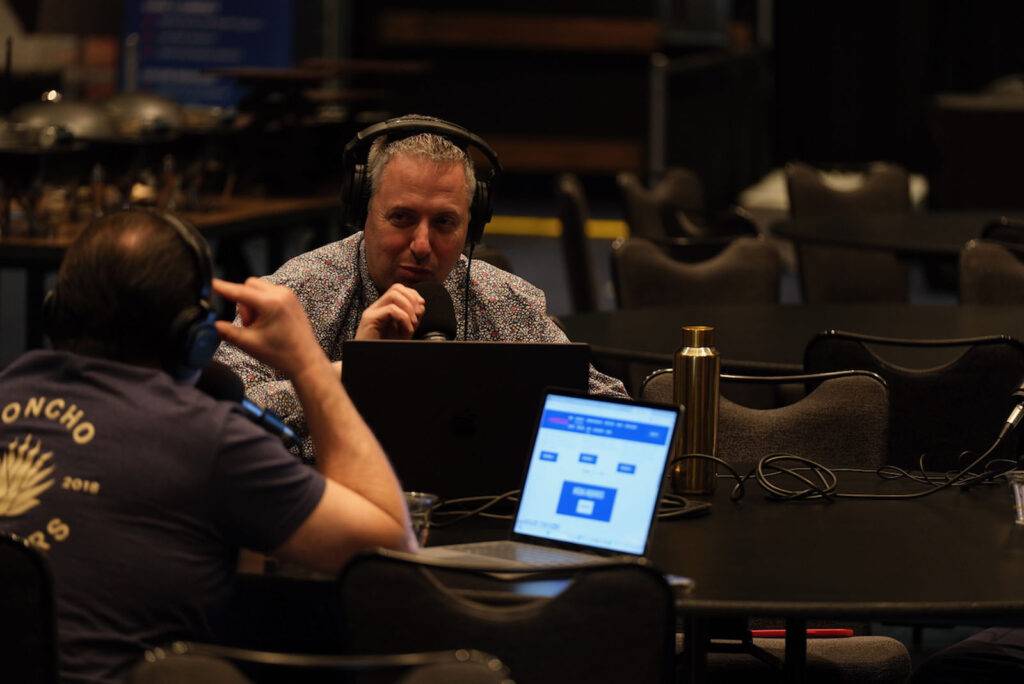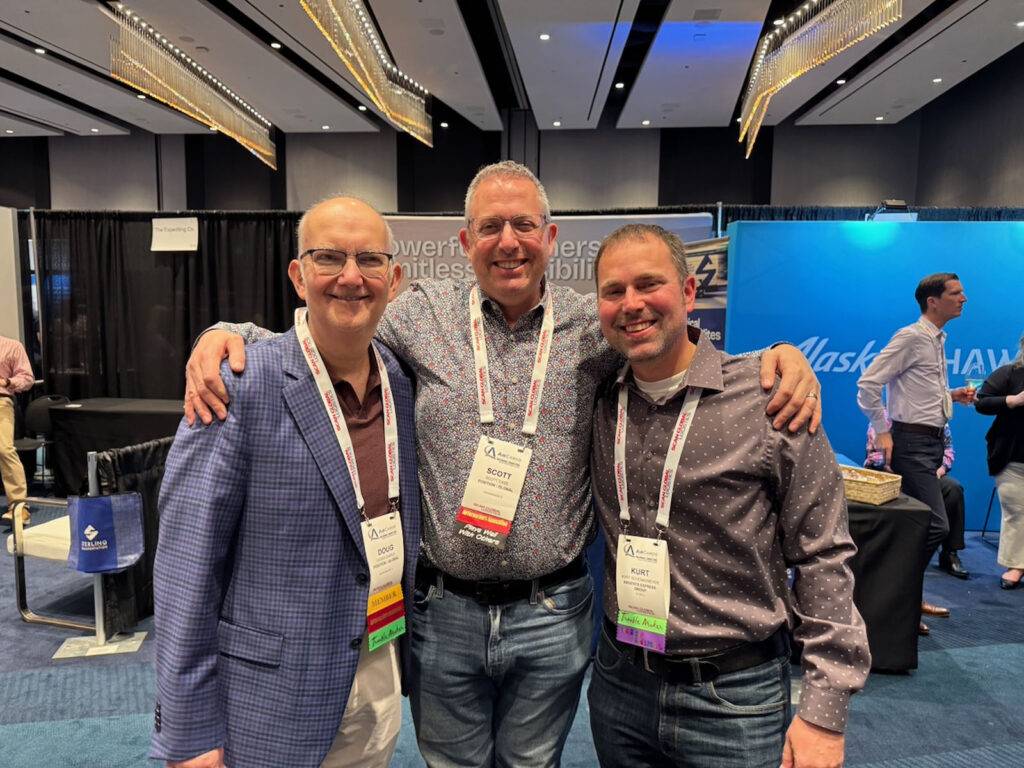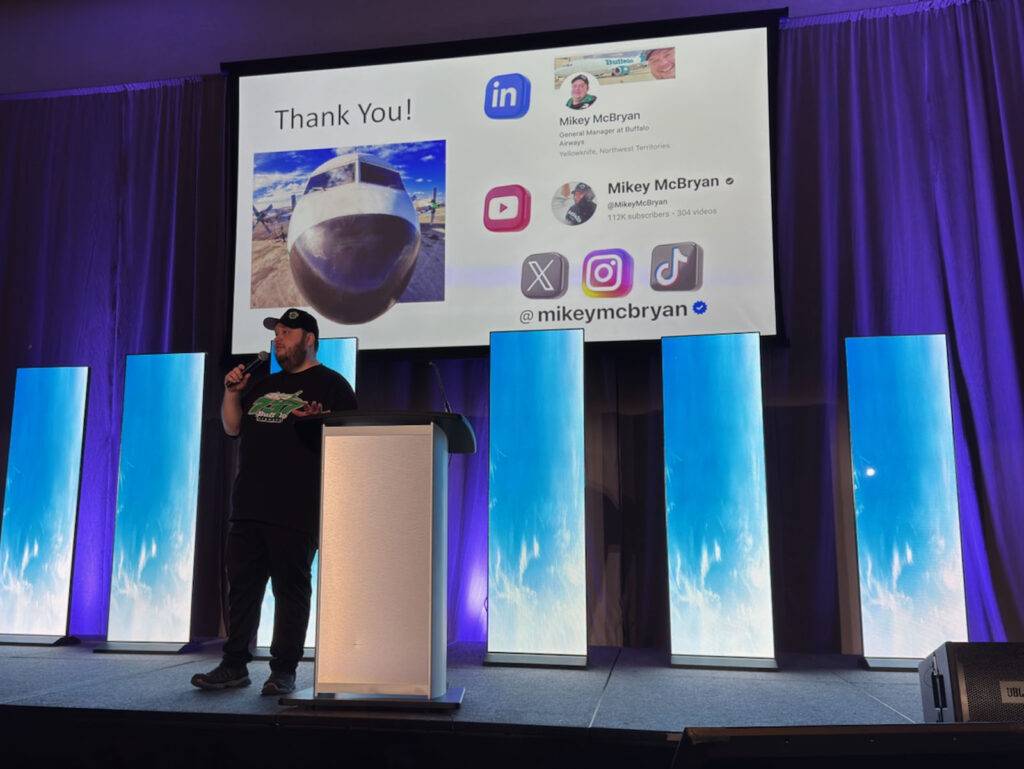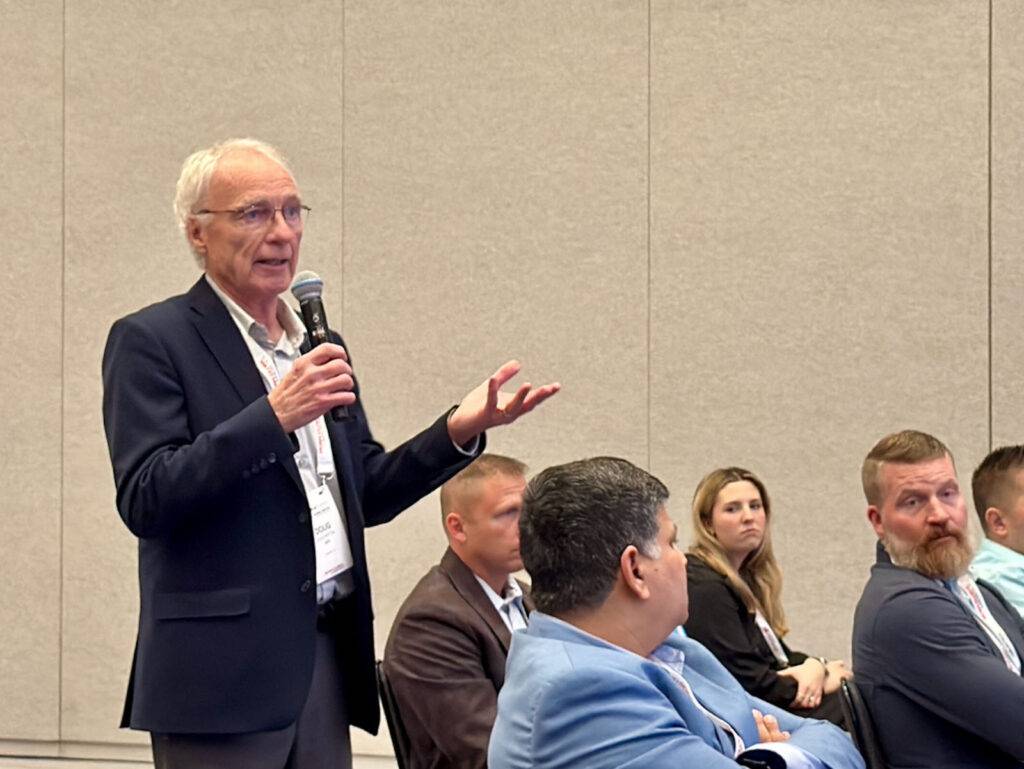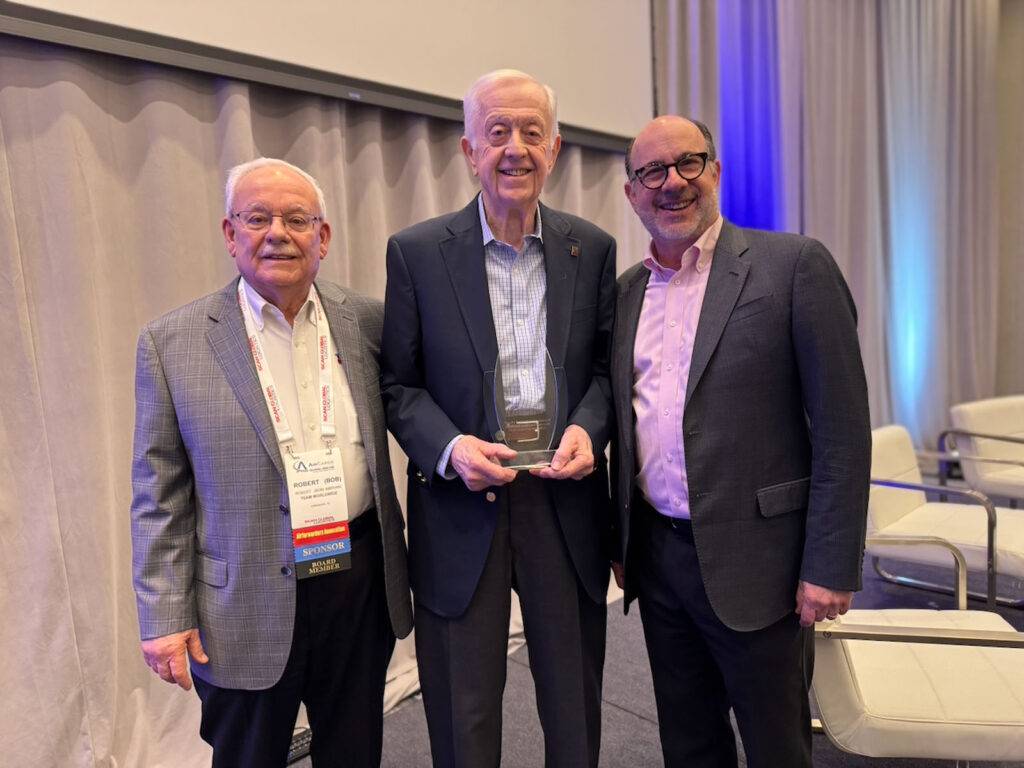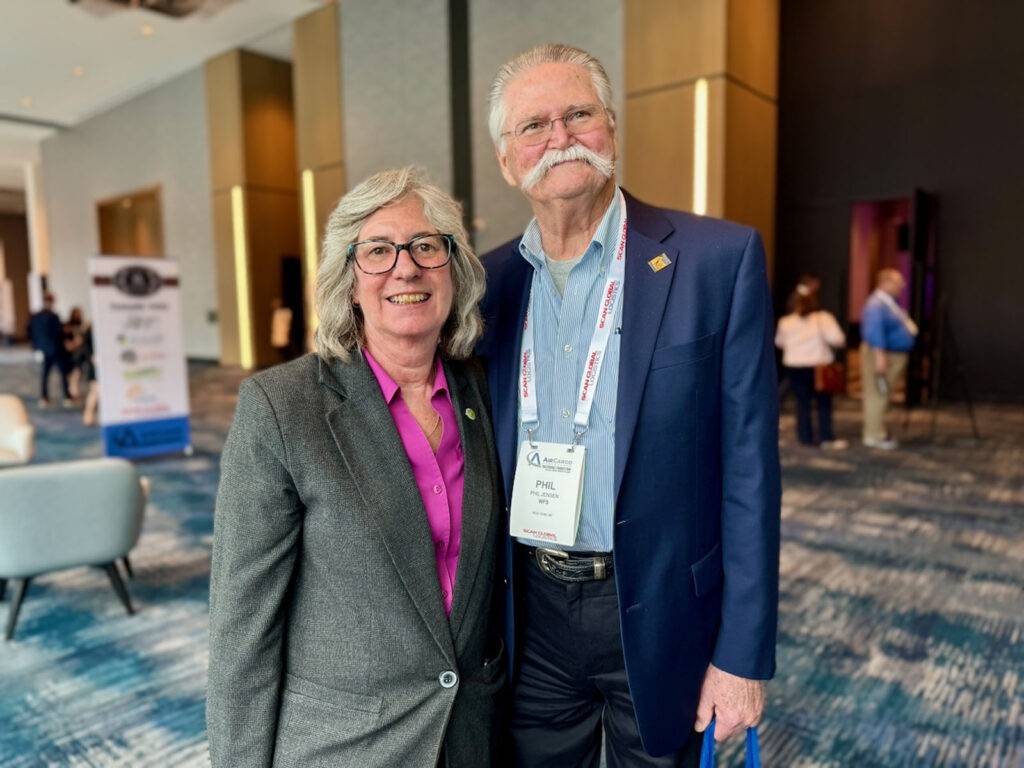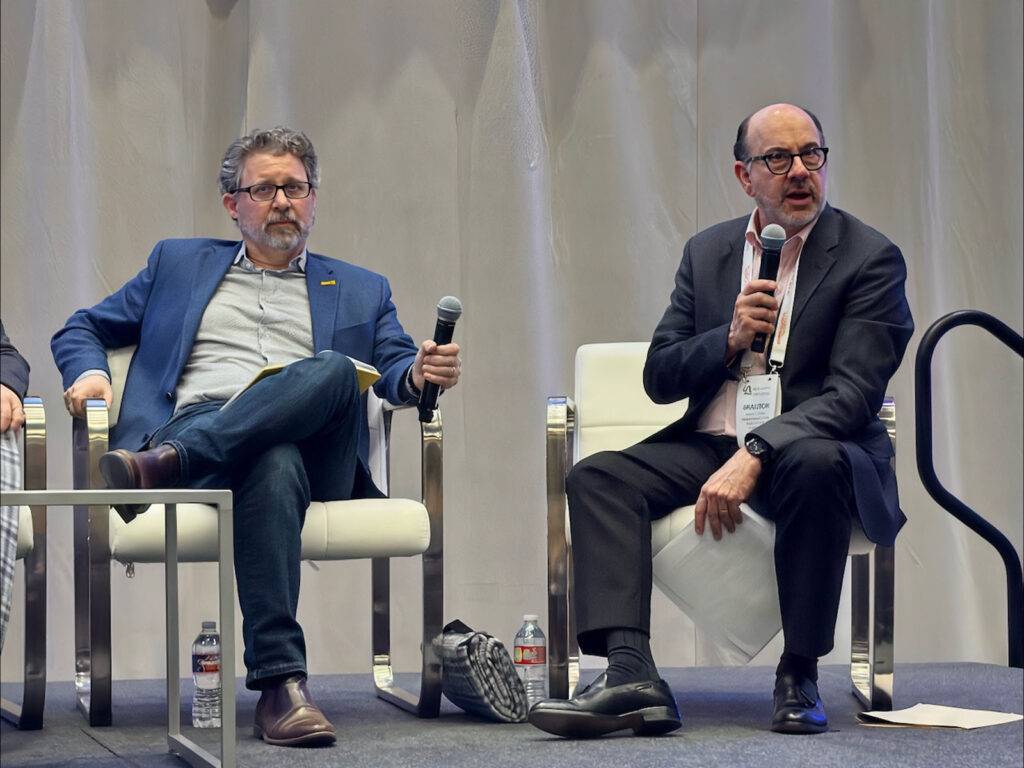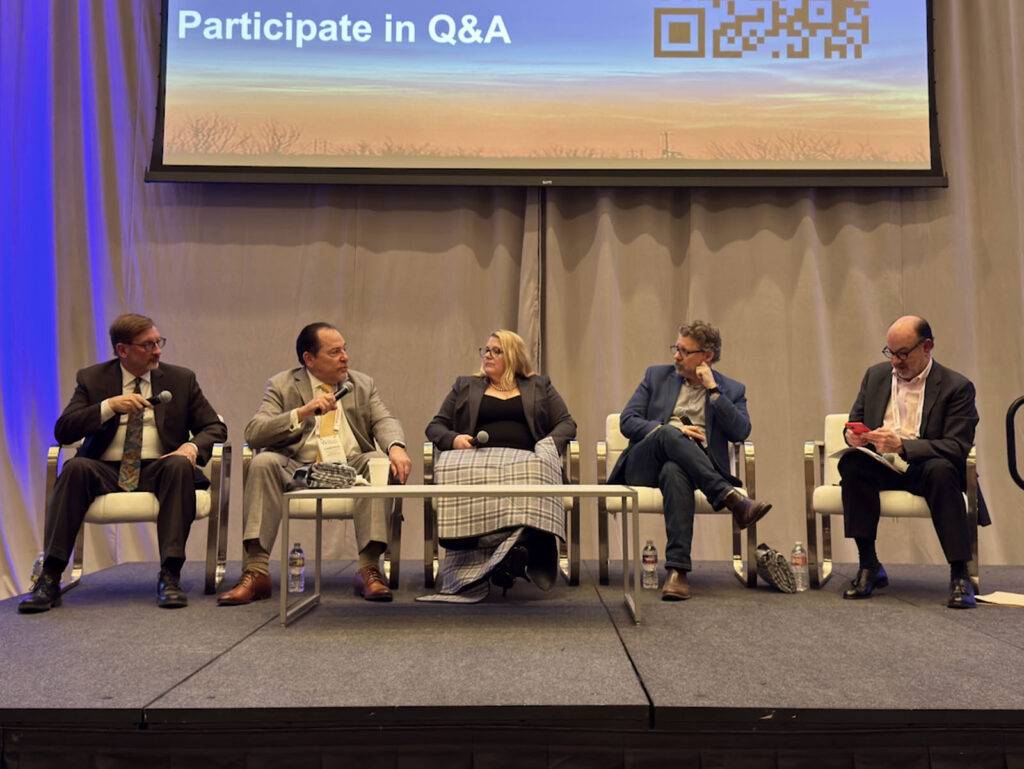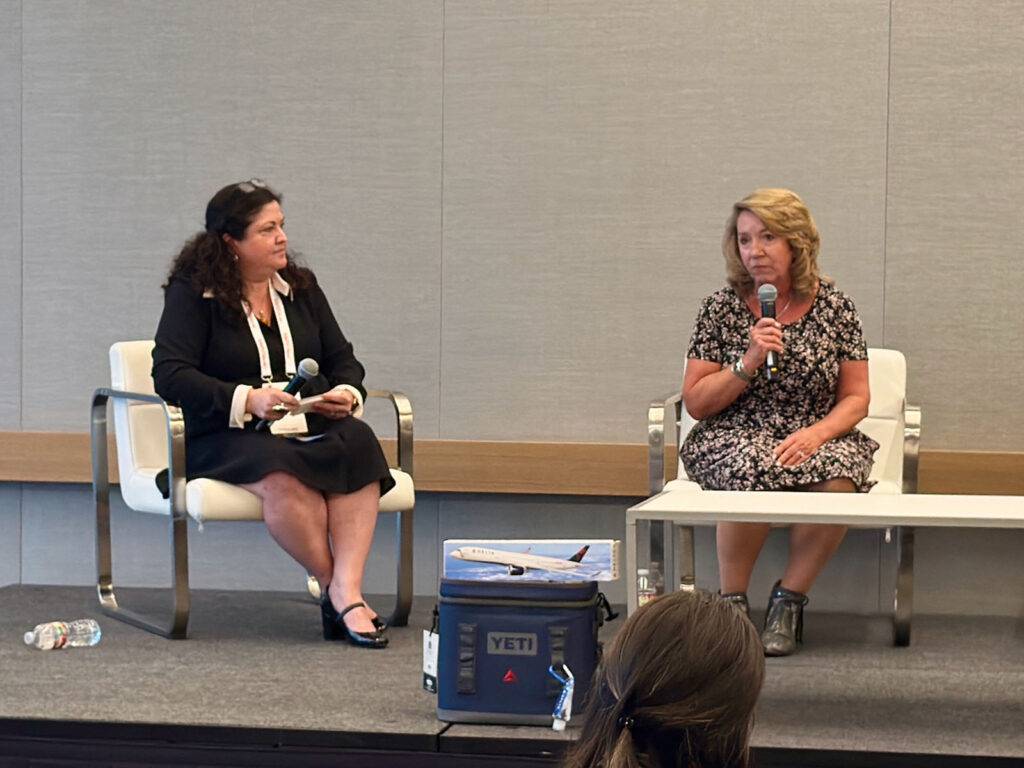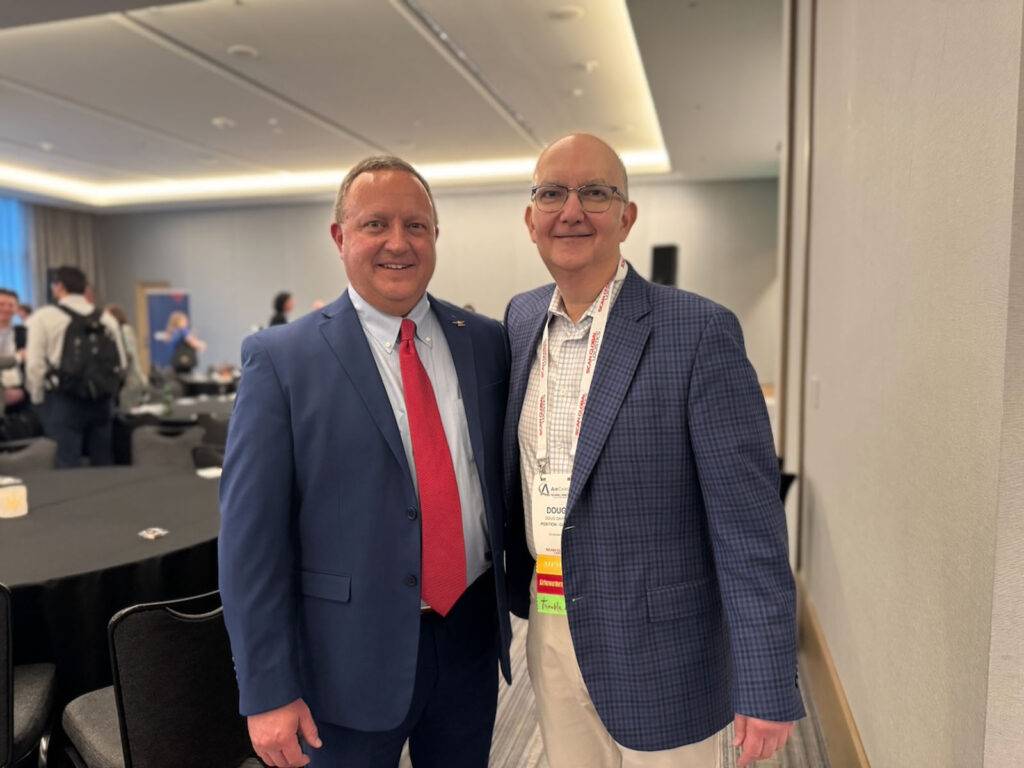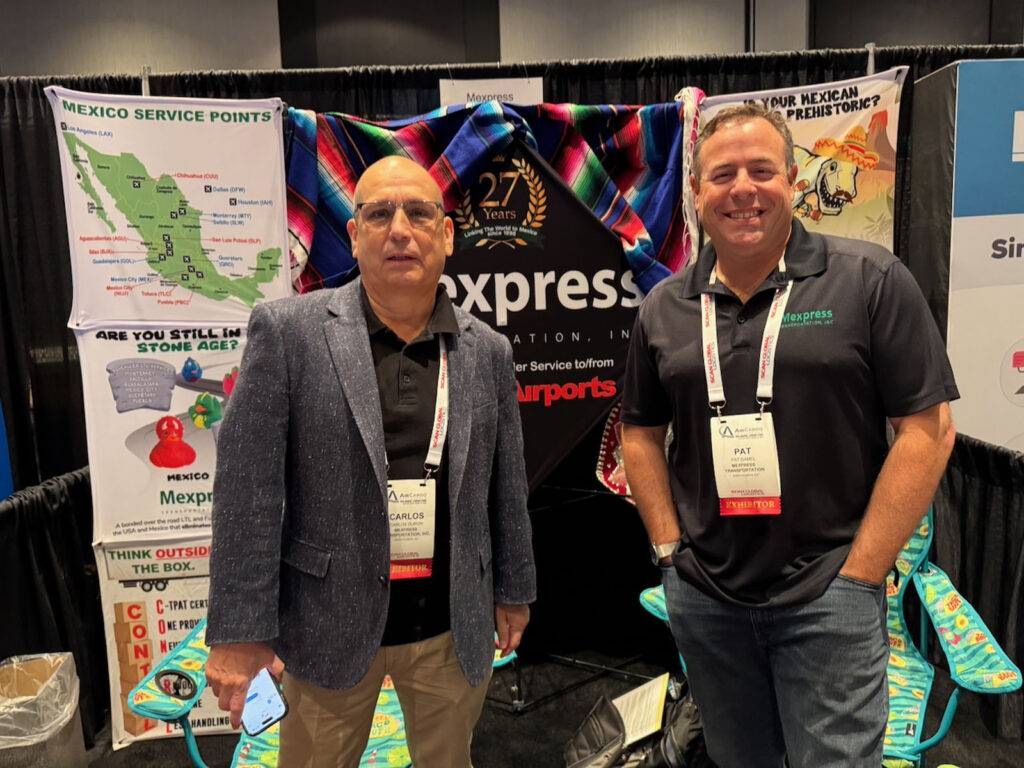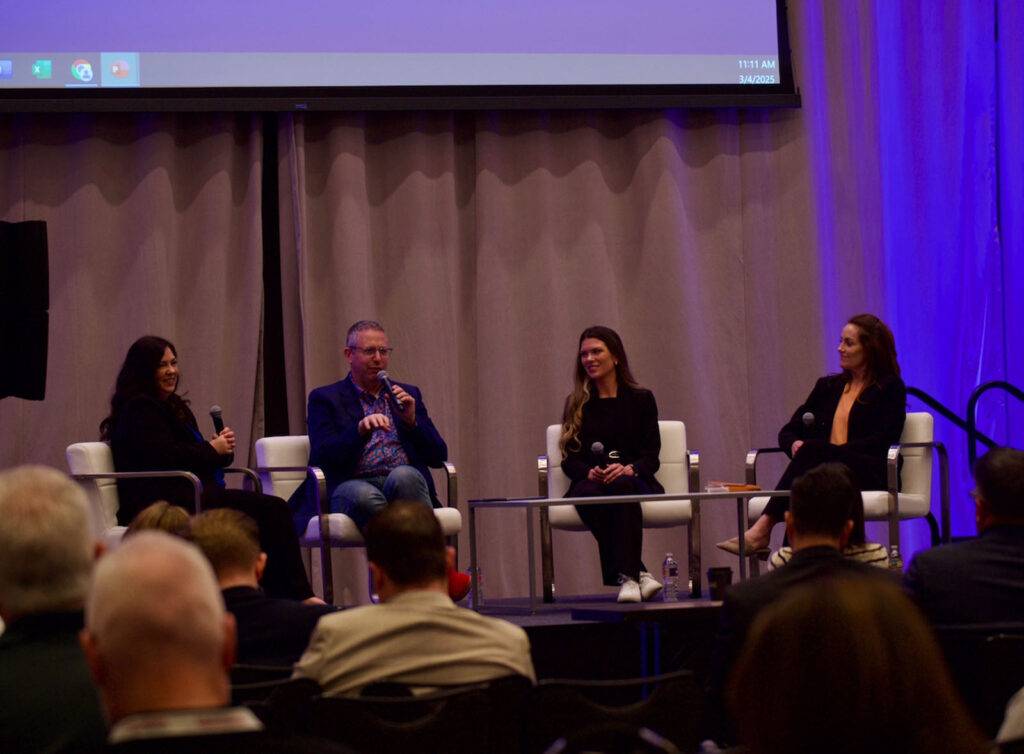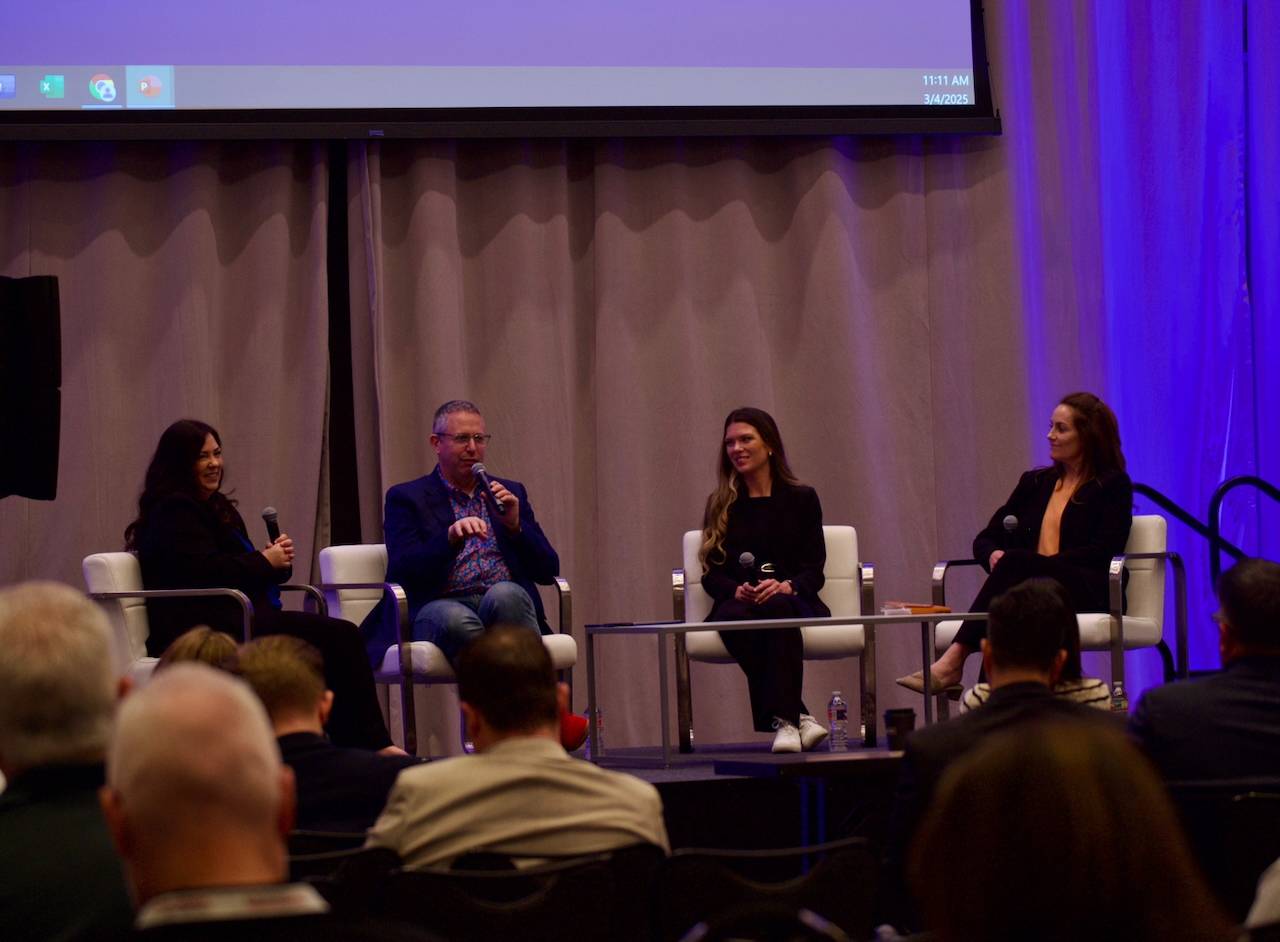I recently had the opportunity to attend AirCargo 2025 in Dallas, Texas, where participants and exhibitors from across the air cargo and multimodal supply chains gathered to discuss the current state and future of the air cargo industry. The conference covered a wide range of topics, from sustainability and technology innovation to humanitarian logistics and current economic challenges facing the industry. As a participant – and a panelist on the marketing panel, I felt the topics that were covered touched on all the current issues in front of the industry. It was a lot packed into a short period of time, as evidenced by the multiple concurrent panel sessions that made it tough to pick which one(s) to attend.
As the conference was happening, the US confirmed and enacted tariffs on Canadian and Mexican imports, only to relent just a few days later for USMCA-eligible imports. The topic of tariffs is omnipresent nowadays, and the political and economic consequences for US importers and exporters – a key constituency in trying to narrow the trade imbalances the president cites in his trade actions – is one that was surprisingly underrepresented.
One of the most valuable aspects of the conference was gaining insight into how different stakeholders in the air cargo ecosystem—airlines, freight forwarders, airports, ground handlers, and technology providers—are approaching rapid advances in technology and incredible fluidity and uncertainty in the industry.
It was a packed schedule, and below is my best attempt to summarize each session.
Session Highlights
- Tariffs and Trade Panel: Industry experts including Michael Taylor (Air Forwarders Association), Cameron Roberts (Attorney), Cindy Allen, and Roger Libby (DHL) discussed the newly announced 25% tariffs on Canada and Mexico. The panelists examined how these changes might disrupt integrated North American supply chains, particularly in automotive manufacturing. They emphasized that this shift represents a fundamental change in trade policy rather than a temporary negotiating tactic, with Roger Libby noting that addressing trade imbalances appears to be a primary driver of the current administration’s approach.
- Compliance Plenary: This panel featuring Aaron Ambrite (AIT Worldwide), Brenda Smith (Expeditors), Jonathan Todd (Benesch Law), Brandon Fried (Airforwarders Association), Arnoud Wink (KLM), and Sandy Gregory addressed the complex regulatory environment. A major focus was the enhanced ACAS (Air Cargo Advance Screening) requirements implemented after security incidents in 2023. The panel highlighted challenges with inconsistent implementation between TSA and CBP, and discussed how regulatory rollbacks under the current administration might impact sustainability initiatives.
- Freight Fraud and Theft: Panelists including Richie Daigle (Tive), Matt Hodson (ACT 2), Lisa Perez (Avalon Risk), Michael Traynor (Sterling), and Braden Core (Scopelitis) discussed the alarming 1,500% increase in cargo theft since 2021. They explored sophisticated fraud schemes that leverage technology to impersonate legitimate carriers, emphasizing the need for improved vetting processes. The panel recommended implementing practices like verifying driver licenses and taking photos of license plates to combat theft.
- M&A for Growth: Edward Steinborn (Lockton), Jacob Fisher (Rock-it Cargo), Kendra Tanner (Allstates WorldCargo), JJ Schickel (Eve Partners), and Chris Hopkins (Benesch) discussed merger and acquisition strategies in logistics. Key considerations included cultural compatibility, thorough due diligence, and understanding the risk profiles of potential deals. They emphasized that successful M&A requires leadership buy-in and transparent communication with stakeholders throughout the process.
- Marketing for Success: Marketing experts Stephanie Alter (Alter Marketing), Lyla Kolar (Allstates WorldCargo), yours truly and Lindsay Elmore (Roanoke Insurance) shared strategies for effective marketing in the logistics sector. The panel emphasized personalization, understanding buyer personas, and balancing traditional and digital marketing approaches. They recommended starting with a solid marketing strategy and focusing on initiatives that demonstrate both efficiency and sustainability.
- Pharma Panel: Patrick Haley (Seattle-Tacoma Airport), Syed Harris Raza (dnata), and Nicole Maddox (Philadelphia Airport) discussed the pharmaceutical logistics market. They highlighted how Philadelphia International Airport is working to capture more of its region’s $53 billion life sciences sector by improving infrastructure and stakeholder relationships. The panel also addressed how geopolitical disruptions are driving more agile product development for pharma logistics.
- Sustainability Panel: Sara Graf (Estes Express), Jason Losh (Dietl International), John Bys (EcoVadis), and Kendra Tanner focused on sustainable practices in logistics. They discussed the challenges of implementing environmentally friendly initiatives while maintaining cost-effectiveness. Sara Graf shared Estes’ roadmap for electrification and renewable energy adoption, including solar arrays at terminals and electric forklifts, while Jason Losh highlighted the importance of making sustainable options the default choice for customers. Josh also cautioned that the administration is looking at dropping words like “sustainability” in favor of “energy efficiency” – more on this later.
- State-of-the-Art Air Cargo Facilities in North America: Paul Krieger (AECOM), David Lotterer (JLL), David Fiore (FedEx), Marcus Menish (Amazon Global Air), and Robert Bachart (Calgary Airport) discussed modern cargo facility development. The panel emphasized flexibility in design, focusing on site development that can accommodate various operator needs. They highlighted the importance of understanding the different requirements of integrators, dedicated cargo airlines, and combination carriers.
- State-of-the-Art Air Cargo Facilities: Jonathan Hardy (Lödige Industries), Thomas Rohrmeier (Lufthansa Cargo), Ali Solaksubasi (Ghafari Associates), and Kristin Beck (BeCon Projects) explored global best practices in cargo facility development. They discussed multi-level facilities as a solution for space-constrained airports, the importance of automation and mechanization, and the role of data analytics in optimizing cargo handling operations.
- Humanitarian Logistics: Glyn Hughes (TIACA), Stan Mendenhall (American Airlines), Brian Bourke (SEKO Logistics), and Steve Smith (Airlink) discussed the critical role of logistics in disaster response. Steve Smith explained how Airlink coordinates with airlines and freight forwarders to deliver aid during crises. Brian Bourke noted that while humanitarian shipments may not be profitable, they provide intangible benefits in terms of employee engagement and industry reputation.
It also might be burying the lede, but the keynote given by Mikey McBride of Buffalo Airways was tremendous. He’s the second generation running the company started by his father and was featured in seven seasons of Ice Pilots NWT (which stands for Northwest Territories). What’d I learn? If you’re a Chicagoan, he had a picture of himself, the Stanley Cup and the Sutter Brothers – and after he was done, was seen proudly picking up a couple of tall boys of Bud Light from the quick serve restaurant. Seemingly a great way to unwind after holding a thousand people in the palm of your hand for an hour.
Throughout the conference, several recurring themes emerged: the need for greater technological innovation, the growing importance of sustainability, the challenge of balancing efficiency with resilience, and the critical role of collaboration across the industry. While tariffs and regulatory changes created uncertainty, there was also optimism about new opportunities, particularly in specialized cargo segments like pharmaceuticals.
My takeaway from the event is that there is a concerted interest in making it both more multimodal and more inviting to international airlines and airforwarders. To that end, the conference set up – at no charge to airlines – meeting rooms to have private conversations with companies along the lines of what happens at the annual CNS Partnership Conference. This should serve as an additional feature to attract greater forwarder attendance. Already billed by Brandon Fried of the Airforwarders Association as “the conference for the rest of us,” AirCargo can continue to maintain that distinction by creating greater attraction for forwarders in future years, starting with 2026 in Orlando.
